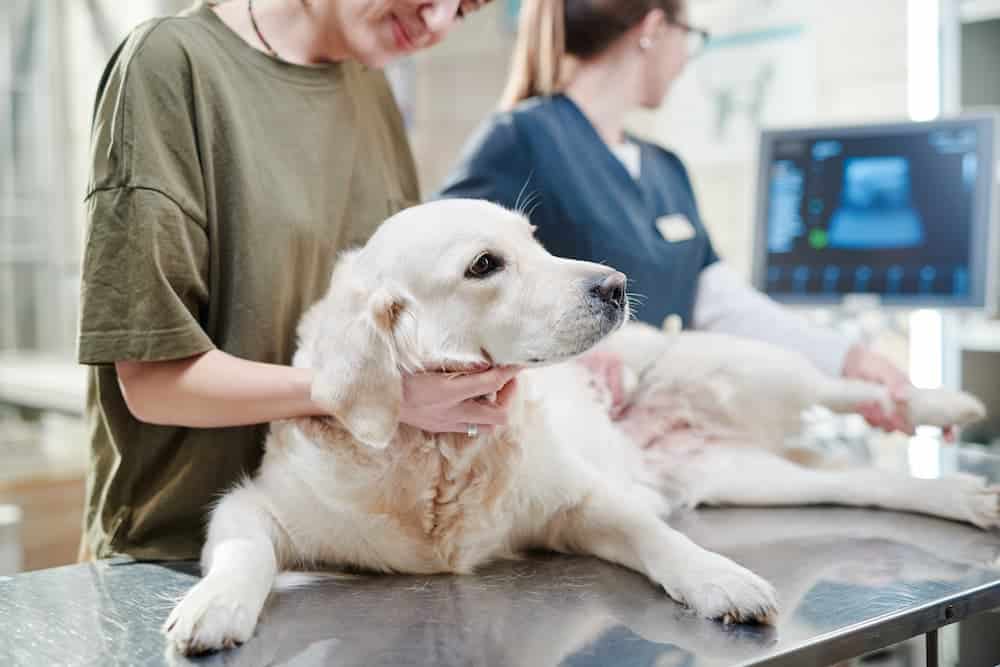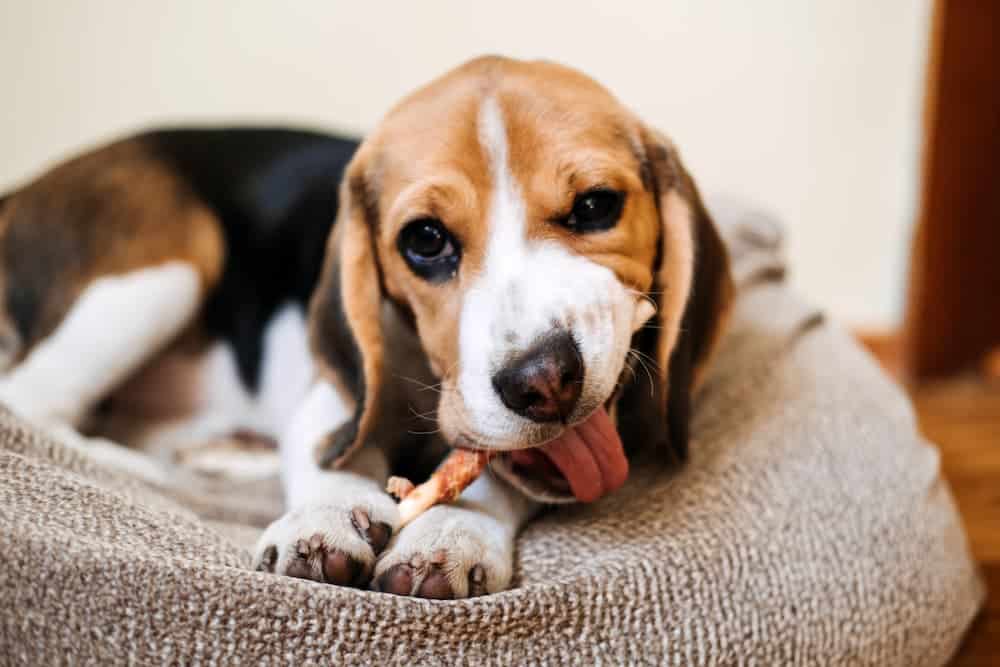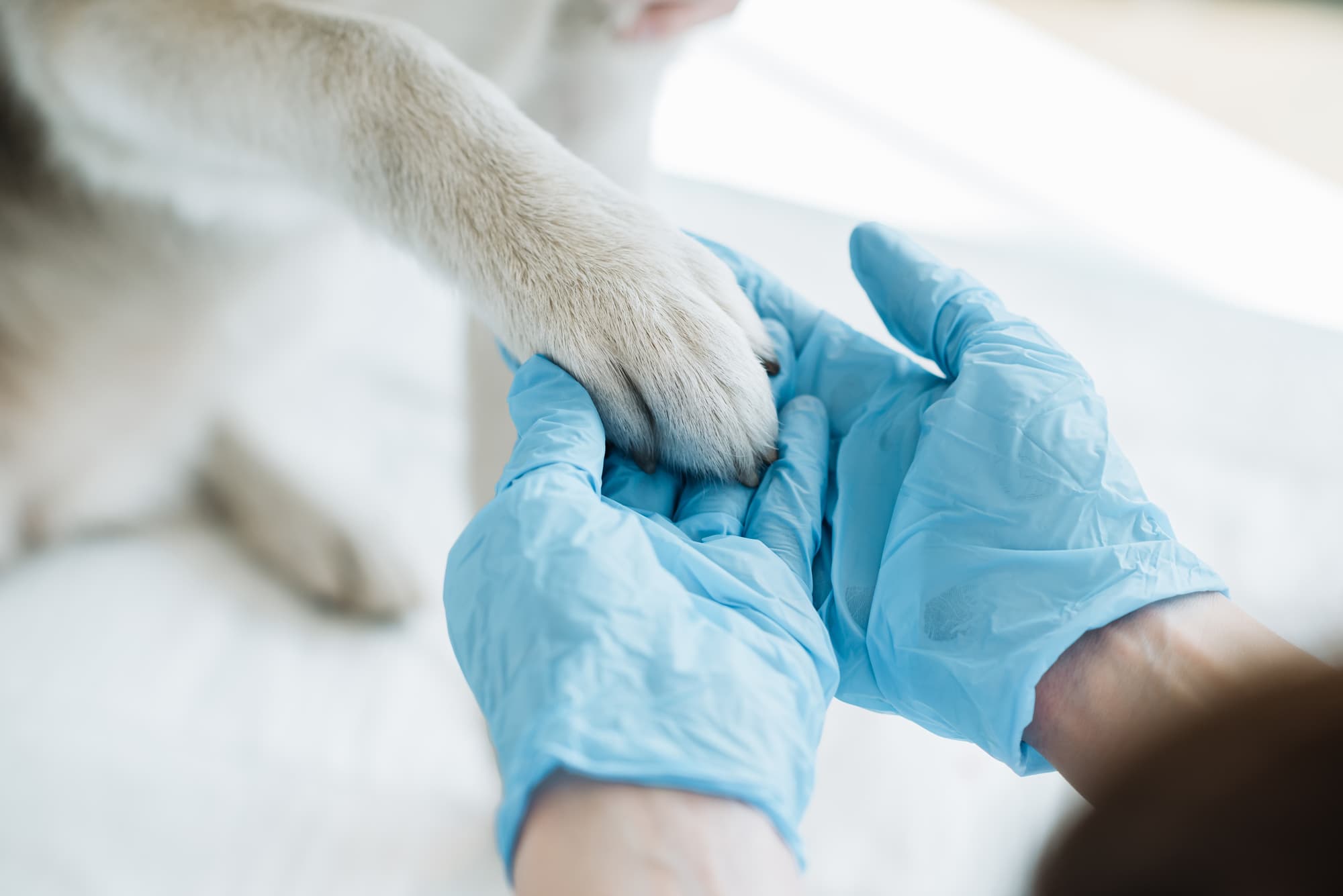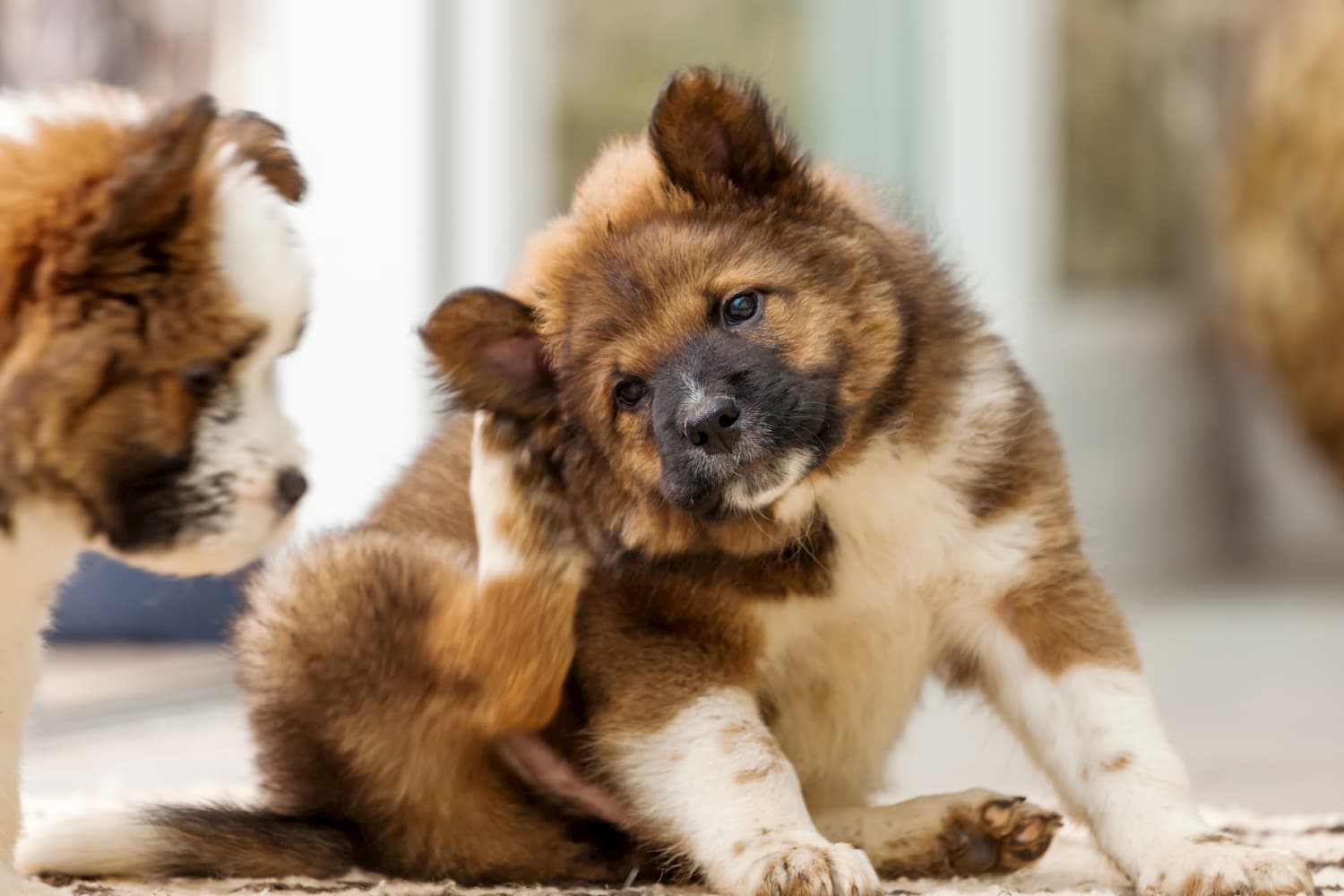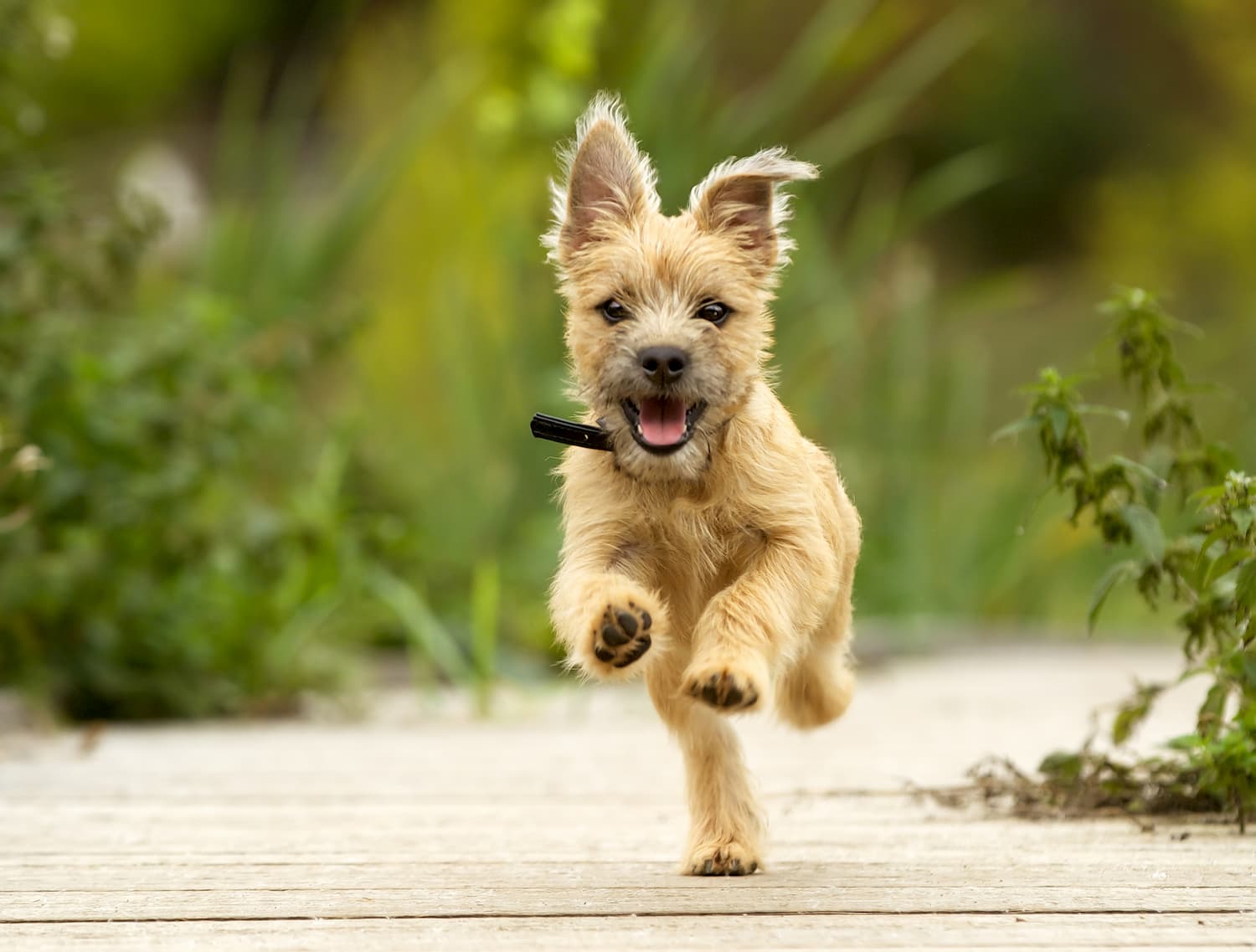For some puppy owners, there’s nothing like the pure love and feeling of unadulterated joy you get when you walk through your front door to be greeted by your new puppy. They’re always so excited to see you, with their little tail wagging, jumping, spinning and barking with glee.
It’s important to remember that jumping up is normal behaviour for puppies. There can be several reasons why puppies jump, one of which is to gain attention. However, if you’d prefer to curb this type of behaviour, we have a few hints and tips below.
How to Stop Your Puppy Jumping Up
As with all behaviours, jumping up is a way for your dog to communicate. This behaviour could mean several things but trying to gain attention is one of them.
Some people would prefer dogs did not jump up, as they worry about causing injury. Others do not mind this behaviour as it can be an enjoyable way of engaging with your dog. It’s best, however, to train your dog to jump up ‘on cue’. If you can say ‘up’ or ‘down’, or use a visual cue, and have your pup follow your instructions, this minimises the risk of your puppy jumping up in situations or on people where it is inappropriate.
The most important thing to remember is that your puppy won’t just grow out of this behaviour. You will have to do a bit of training if it’s a behaviour that you want to avoid.
Here are some expert tips:
- Never forcefully push your dog away, or shout when they jump up. Remember, your puppy may just want your attention, and even a negative reaction can be construed as attention. In this instance, you are actually rewarding the behaviour that you’re trying to prevent
- If your puppy jumps up, it is best to ignore them and avoid eye contact. Instead, ask your puppy to engage in a different type of behaviour, such as sitting
- You need to accept that when your puppy is excited, it can be hard for them to immediately follow your command. Just stay calm, give them time and when all four feet are on the ground, ask them to sit and then provide them with attention and even a treat
- You can even give treats to visitors so they can reward your pup for not jumping on them when they first arrive at your home
- If you just can’t seem to stop your puppy jumping, it is likely that your pooch is getting attention from someone for doing so. Jumping can only be prevented if everyone your puppy is in contact with consistently ignores the behaviour
How to Stop Your Puppy Barking
If jumping up is a possible sign of communication, barking is a definite and obvious one. Your puppy may be barking for any number of reasons – excitement, fear, or just a desire for some attention!
If your puppy is barking incessantly or seemingly without reason, there are a few things you can do:
- Give your puppy a special massage to comfort them. This is especially important if your pup is fearful or over-excited
- If your puppy is barking for attention, they may be bored. They need plenty of distractions to keep them occupied, so make sure they have chew toys or bones to play with
- Whenever your pup isn’t barking and is relaxing, make sure you reward them with calm, quiet prise. Don’t get them excited—just reinforce the message that being calm is a good thing
- Remember, shouting or punishing your puppy when they bark is a form of attention which can reward the behaviour. Your pup is barking for a reason, you can’t just yell that reason away. Instead, make them feel safe, loved and entertained, and they’ll stop barking
Well-behaved puppies are created by calm and consistent owners. It’s not about yelling or ruling your dog with an iron-first. Your pup is your best friend and should be treated as such. Yes, they need a lot of attention, but it’s only because they love you unconditionally and you are the centre of their universe.
Barking or jumping is their way of telling you they need something. Whether it’s a little pat on the head, some new toys, a walk in the park or even just that there’s something that’s scaring them, you need to find the root of the message.
What can’t be stressed enough is that yelling doesn’t work. Positive reinforcement does. Use treats and attention to reward them when they’re being good and if they slip up just wait until the moment has passed and focus on the positives again.
If you really can’t get your dog to stop barking or jumping and it’s causing problems, ask your local vet for help. Dogs are never too young or old to be trained, and sometimes a fresh, objective approach is precisely what is needed.

